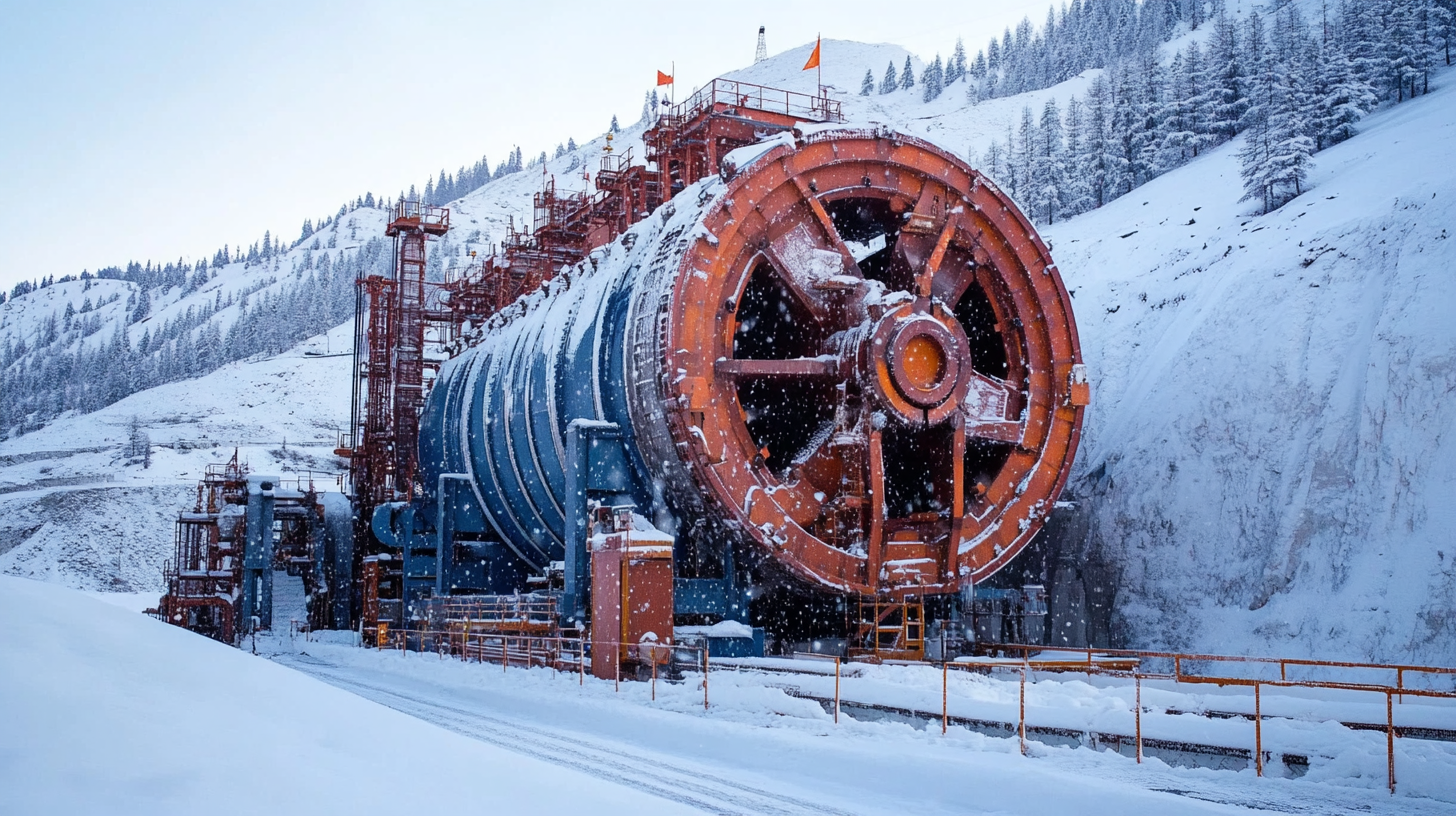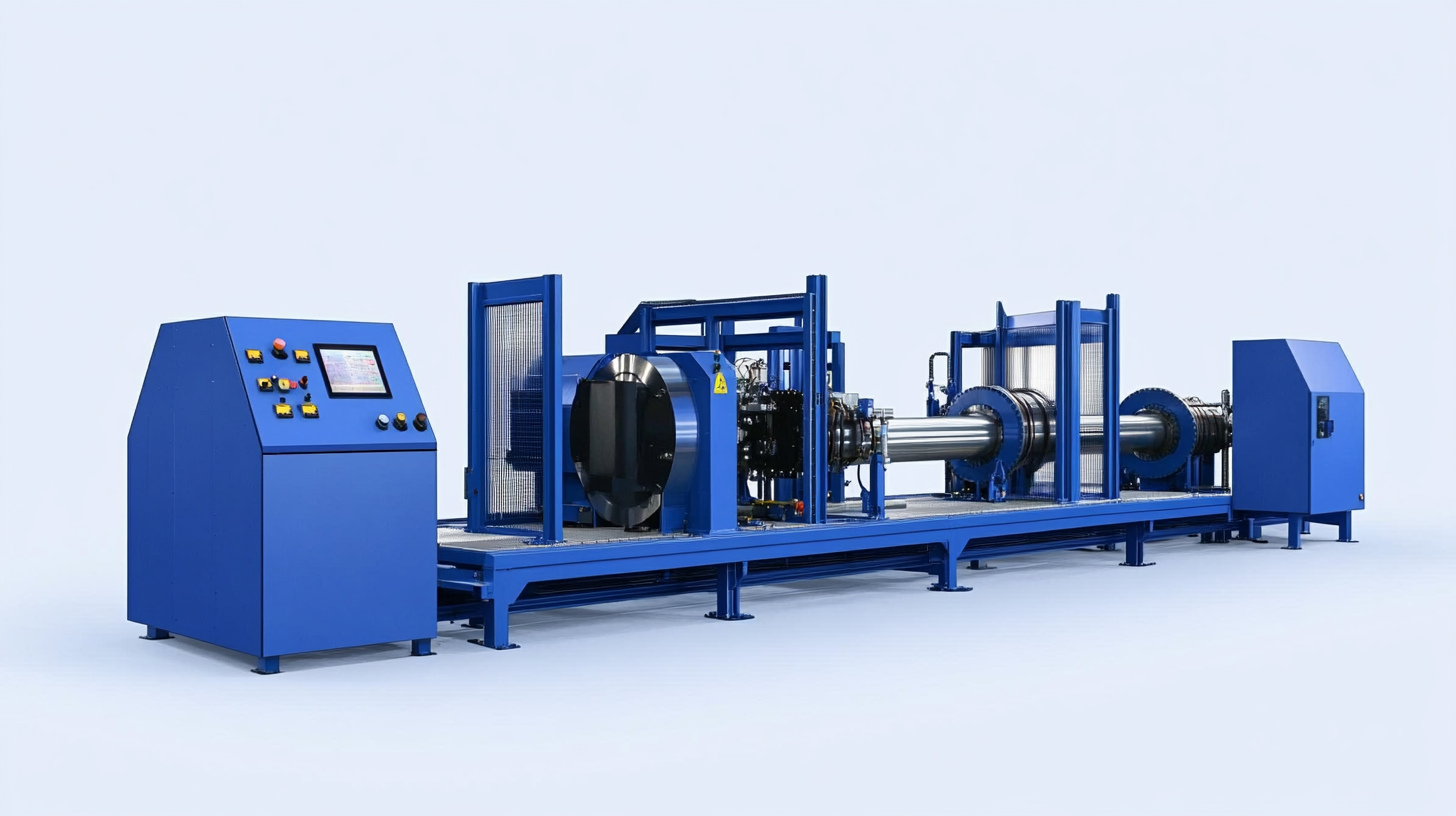
In today's competitive manufacturing landscape, the importance of high-quality machinery cannot be overstated, particularly when it comes to producing precise and durable products. The Tube Mill Making Machine stands at the forefront of this necessity, enabling manufacturers to create reliable and consistent tube products that meet stringent quality standards. As industries around the world demand more efficient and sustainable production methods, China's leading manufacturers have risen to the challenge, offering advanced tube mill making machines that combine innovative technology with unparalleled craftsmanship. This blog explores the reliability and superior performance of these machines, highlighting how they contribute to the success of businesses seeking to enhance their production capabilities while maintaining a commitment to exceptional quality. Discover how investing in a Tube Mill Making Machine from reputable Chinese manufacturers can transform your production line and give you a competitive edge in the market.

The evolution of tube mill manufacturing technology has seen significant advancements over the past few decades, driven by the growing demand for precision and efficiency in industrial production. Traditionally, tube mills operated on basic mechanical principles, producing standard tubes with limited customization. However, recent innovations have introduced automation and advanced control systems, allowing manufacturers to produce a wider variety of tube specifications with unmatched accuracy. These technologies streamline the production process, reduce material waste, and enhance overall operational efficiency.
Moreover, Chinese manufacturers are at the forefront of this evolution, combining traditional craftsmanship with cutting-edge technology. Implementation of CNC (Computer Numerical Control) systems and real-time monitoring has empowered tube mills to achieve consistent quality in every batch. Continuous improvements in material processing and machinery design have also led to longer-lasting equipment, lower maintenance costs, and optimized production cycles. As the industry continues to evolve, these advancements not only elevate the quality of tube products but also ensure that manufacturers can meet the increasingly complex demands of global markets.
When searching for high-quality tube mill machines, it is essential to prioritize specific features that guarantee reliability and performance. According to a report by the Research & Markets, the global demand for tube mills is projected to grow at a CAGR of 5.4% from 2021 to 2026, highlighting the increasing importance of selecting the right equipment. Key features include precision engineering, which ensures that the machines produce tubes with tight tolerances and consistent wall thickness. This level of quality is critical, especially for industries like automotive and aerospace, where material integrity is paramount.
Another vital aspect is the automation capabilities of the tube mill machines. Advanced models offer enhanced automation features that improve efficiency and reduce labor costs. A study from BCC Research indicates that automation in manufacturing could lead to a 30% increase in productivity. By investing in machines with high levels of automation, manufacturers can not only streamline operations but also ensure optimal quality control processes.
**Tips**: Always consider the machine’s maintenance requirements; machines with user-friendly maintenance features can save significant downtime. Additionally, look for manufacturers that provide robust customer support and warranty options, as these can be indicative of the machine's reliability and the manufacturer's commitment to quality. Ensure to review case studies or testimonials that highlight the performance of specific models in various operational conditions.
China is at the forefront of the tube mill industry, with several manufacturers leading the way in innovation and production capabilities. According to a report by MarketsandMarkets, the global tube and pipe manufacturing market is projected to reach USD 120 billion by 2025, driven largely by the growth of infrastructure and construction sectors in emerging economies, with Chinese manufacturers playing a pivotal role in this expansion. These companies not only meet the high demand for precision-engineered tube mill machines but also adhere to stringent quality standards, ensuring consistent performance in various applications.
When selecting a reliable tube mill machine, consider these tips: First, assess the manufacturer's reputation and years of experience in the industry; a well-established company typically indicates reliability and expertise. Second, look for certifications and compliance with international standards, such as ISO and CE, which can reassure you of the product's quality. Lastly, evaluate the after-sale services provided, including maintenance and technical support, as they are crucial for the longevity and efficiency of your equipment. With the right insights and careful selection, businesses can enhance their production quality and efficiency, ultimately leading to greater profitability.

When considering the cost-effectiveness of investing in reliable tube mill equipment, manufacturers must weigh both initial capital outlay and long-term operational savings. Advances in technology have shifted the focus towards energy efficiency and waste reduction. Reports indicate that energy-efficient technologies can significantly improve productivity while reducing operational costs. For example, energy savings and reduced carbon emissions can be achieved through modernized production processes, aligning with the industry’s move towards sustainability.
Furthermore, the capacity utilization rate is a critical metric for tube and pipe producers, as it reflects the percentage of potential output being realized. By optimizing this rate, manufacturers can minimize downtime and scrap, which ultimately contributes to a healthier bottom line. With global markets indicating a CAGR of 4.2% in the hammer mill sector by 2035, the demand for reliable and efficient tube mill equipment is set to rise. Investing in quality machinery not only ensures consistency in production but also aligns with the growing emphasis on sustainable practices, making it a wise choice for forward-thinking manufacturers.

In the competitive landscape of tube mill production, quality control is paramount for ensuring consistent output. Leading manufacturers in China prioritize stringent quality assurance processes to maintain their reputation for reliability. According to a recent industry report by MarketsandMarkets, the tube manufacturing market is projected to reach $6.87 billion by 2025, underscoring the growing demand for premium products. This surge emphasizes the necessity of robust quality control measures at every production stage to meet both consumer expectations and regulatory standards.
To achieve the highest quality in tube mill production, manufacturers adopt advanced quality control systems that integrate real-time monitoring and automated inspections. Techniques such as Statistical Process Control (SPC) enable producers to detect and rectify deviations in the manufacturing process promptly. Additionally, utilizing cutting-edge technology like AI and machine learning for predictive analytics helps in foreseeing potential quality issues before they arise.
**Tips:** Employing regular calibration of machines and training operators in quality standards can significantly enhance the overall product quality. Another effective strategy is to implement end-to-end traceability in the supply chain, ensuring that every component meets stringent quality specifications. Regular audits and assessments can further solidify adherence to quality standards, ultimately leading to increased customer satisfaction and loyalty.
